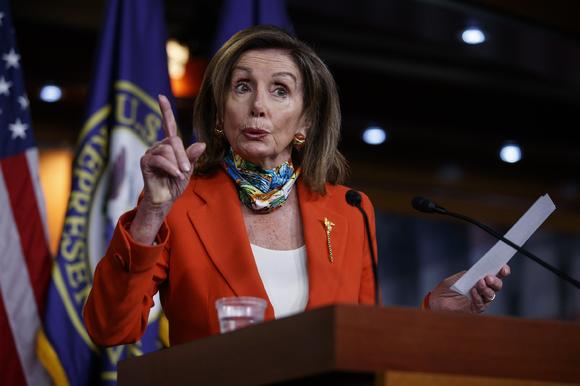Today, US House Democrats proposed a plan to bring the US economy to net zero by 2050. House Speaker Nancy Pelosi and Rep. Kathy Castor released a 538-page plan outlining numerous goals meant to reduce greenhouse gas emissions to zero. A plan that includes transitioning to green energy and electric vehicles with government mandates, new infrastructure, and tax incentives. According to a Pew Research Center study, 65% of Americans overall believe the federal government isn’t doing enough to combat the impact of climate change. Leaving us to wonder why they’ve decided to begin now, during such a volatile time.

Representative Kathy Castor (D-FL), the chair of the House Select Committee on the Climate Crisis, said “It will provide a plan that can be taken off the shelf and adopted into law as soon as we are able to reconvene.” Adding to this statement she said “People would say, ‘Well, why are you releasing this in the middle of COVID and… protests?’ We can’t wait. We can’t wait any longer.”
It has been confirmed that there is a direct correlation between long-term exposure to air pollution and a higher coronavirus death rate according to A Harvard University study at the T.H. Chan School of Public Health. While Republicans control the senate and President Trump is in the White House there is virtually no chance of this plan going anywhere, but it’s at least a start. Also, with this year being an election year, Democrats may be able to shift the political balance by 2021 giving this plan a much more probable chance.
Gina McCarthy, president and CEO of the Natural Resources Defense Council, said “The House has an opportunity to put a down payment on those pledges this week as it considers an ambitious infrastructure bill. This measure would make much-needed investments in mass transit, pedestrian-friendly development, and electric vehicle charging stations, while at the same time spurring clean energy deployment and addressing our aging water infrastructure.” Adding “This is the kind of leadership our country needs right now — putting the well-being of people, communities, and our economy ahead of powerful polluters.”

